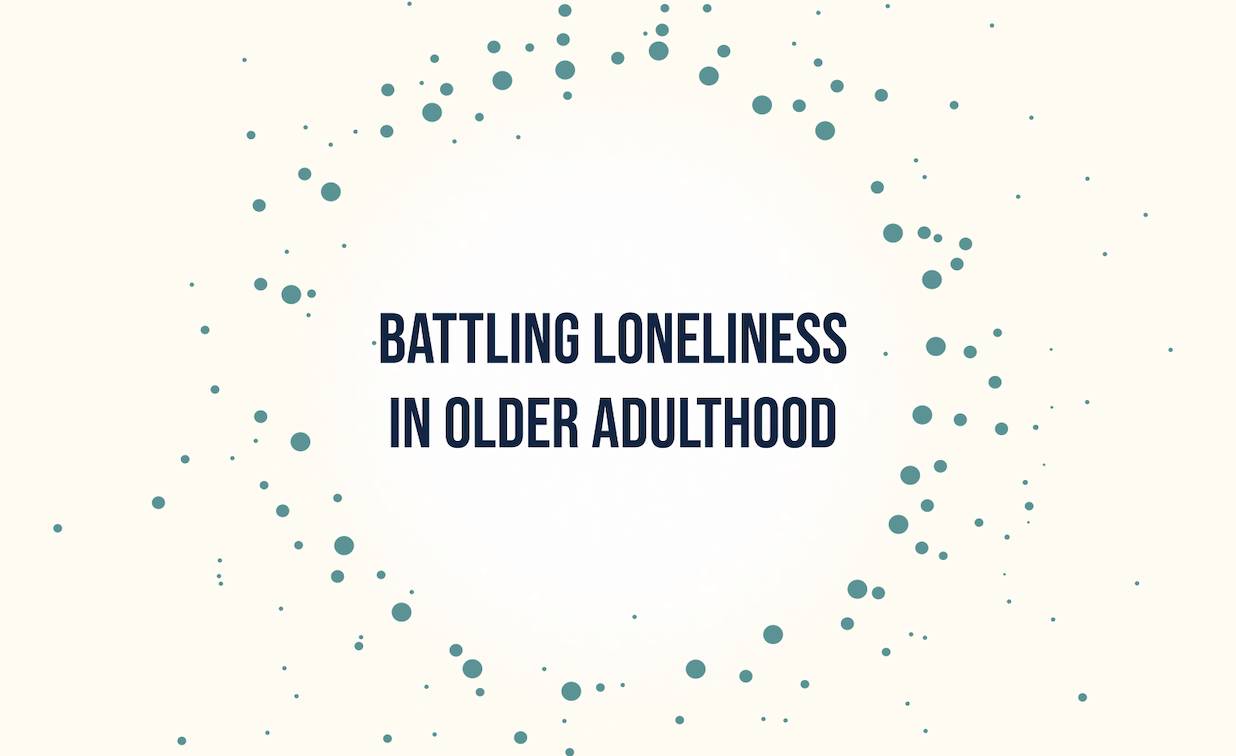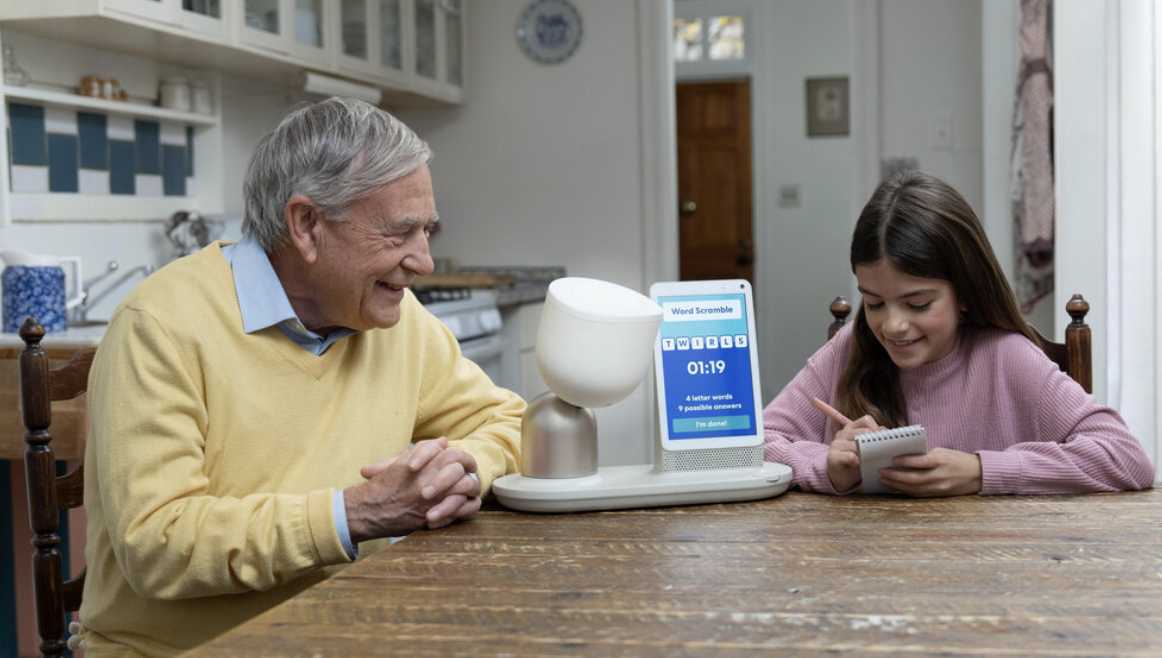Improve Your Medicare Advantage Plan’s Star Ratings With The Power of AI Care Companion
March 5, 2024 by Intuition Robotics Team
A typical Medicare beneficiary has an average of 43 MA plans to choose from, so it is tough to stand out. Addressing loneliness through companionship can help drive engagement and satisfaction while raising your star ratings.
You spent 2023 defining your goals for this year, designing and optimizing benefits and programs to improve member satisfaction, and using cutting-edge tracking and analysis tools to see what your competitors are doing. But, how will you do this year?
It’s increasingly hard to meet member expectations and drive engagement, while also differentiating yourself from competitors. Learn more about how addressing loneliness (though not a star rating factor) can have an impact on member outcomes—and your bottom line.
Loneliness isn’t just a social phenomenon: it’s a silent epidemic.
Think about your own ability to connect with colleagues, peers, friends, family. and loved ones. They make up the social network that feeds back to you and showers you with love, offers you advice and is generally there for you.
These ties and networks can shift and break over time as your members age, and the cost of those cut ties is heavy. While loneliness isn’t currently a star rating factor, the long-lasting effects and dangers of isolation are making it an unignorable priority for your success in 2024. 2017 AARP research, found that older adults who are lonely have 50% higher healthcare costs than their socially-engaged peers.
Loneliness is also on the surgeon general’s radar, who issued a report in 2023 on the epidemic of loneliness and isolation. He also cited the effects of loneliness on mortality, being the equivalent of smoking 15 cigarettes a day.
Based on the 80/20 rule, members who are costing you the most are likely isolated from their communities. As a result, they’re also less likely to be able to self-manage their healthcare.
People who live alone rely on the assistance of family caregivers, who may be ill-equipped to provide them with the engagement and visit frequency they need to improve their quality of life.
Tackling loneliness: a preventable health risk for your plan.
Causes of loneliness like the death of a spouse or divorce, are not preventable, but many of the risk factors associated with it can be. Many chronic health conditions, for example, can lead to a higher prevalence of loneliness, due to:
- The added difficulties of performing activities of daily living (ADLs)
- Dependency on family members and neighbors for day-to-day tasks
- The need to navigate the stigma as friends or family members may keep themselves away from illness and disease
- Friendships or relationships ending
When you can collaboratively address loneliness, this can positively impact:
- Medication adherence
- Chronic disease management
- Quality of life
Thus, the cost of not investing in measures that address loneliness can be detrimental.
Despite the fact that older adults tend to retain more friends than those of other generations, they make up a disproportionately large number of suicides. You have the power to impact these numbers and help your members stay connected, happy, and healthy.
How you can move the needle on your star ratings today.
There are many different interventions that tackle loneliness, like Amazon Alexa Together and other devices. ElliQ is a care companion robot for older adults that stimulates conversation and engagement and fosters a relationship with them.
In a pilot with the Olympic Area Agency on Aging, they were aiming to reach at least 20 daily engagements with ElliQ (on average) per user.
“We had high hopes for the efficacy of ElliQ, but the results that we’re seeing are truly exceeding our expectations,” said Greg Olsen, Director of the New York State Office for the Aging. “The data speaks for itself, and the stories that we’re hearing from case managers and clients around the state have been nothing short of unbelievable. To see the impact this technology is making on the lives of our community members is incredibly moving and we can’t wait to see this program continue to grow."
In the pilot, users engaged with ElliQ an average of 23 times a day. What’s more, 71% of participants reported that they lacked companionship, and 6 months after launching, 30% reported that they lacked companionship, a 40% drop in self-reported loneliness rates.
For plans, what this does is close the loop and critical gaps that exist within the care system. Home care is a service that many families rely on, and having care for any period of time can drain savings, especially when care needs are light but frequent in duration like daily conversation and companionship.
EllIQ can complement in-home care or respite support that plans offer, by being present and engaging members when they don’t have a family member and between visits.
What can increase engagement through companionship robot do for your health plan?
A study in the UK found that more than 200,000 people over the age of 65 could go a week without talking to another individual face to face. With mixed adoption of technology and mobile phones, it creates a grim situation for their health and happiness.
- Medication Adherence: Your community health workers and other personnel aren’t able to meet every member and check to see if they’re taking their meds properly. With ElliQ, they can set up regular medication reminders to prompt them every day. They can also log symptoms and adverse reactions when a new one is prescribed.
- Fall Prevention and Reduction: When your members are depressed or anxious because they’re alone, this can reduce their likelihood of staying active and getting out. This can compound and lead to physical symptoms like muscle weakness, fatigue, and falls. With ElliQ, your members can engage with a friend as often as they want to, while having the ability to play fun games, try new exercises, and listen to their favorite music all day long.
- Hospitalization/Readmission Prevention: With ElliQ, your members can stay engaged 365 days a year, recording their weight, blood pressure, and more. Members can also report how they’re feeling, whether that’s emotional like anxiety, physical like back pain, and more, to help you avoid hospitalization and readmission through early detection without adding extra resources to your internal teams.
- Blood Pressure Reduction: Companionship makes the “love hormone,” which can help to reduce blood pressure. Not to mention, that with ElliQ, older adults can verbally record their blood pressure so it can be securely stored for reference. You can leverage this type of data to anticipate future needs and provide preventive care.
If your health plan is looking to reduce costs by keeping members engaged, reach out for more information about ElliQ today.
Recent posts
.png)
The benefits of an AI-driven social robot for area agencies on aging
by Intuition Robotics Team

